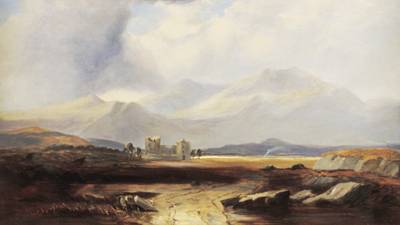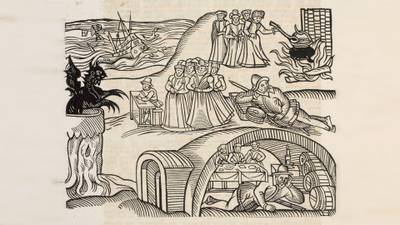Join us online to explore the history of plague, pandemics, and pestilences.
Pandemics have repeatedly reshaped history. Societies respond in a variety of ways, but the most important result is that they are never the same afterwards.
In this Masters-level online short course, you’ll develop knowledge of historical pandemics around the world and in Scotland, discovering how societies have responded to the deadliest epidemics in history.
With guidance from expert historians, you’ll examine:
- the history of infectious diseases, with special reference to the Scottish experience
- official and individual responses to historical pandemics
- the prevalence of conspiracy theories throughout pandemics in history, and
- how pandemics can radically alter societies.
You’ll learn to place our recent experiences with COVID into a wider context, to better understand the ‘new world’ we find ourselves in.
Who can join this online pandemic history course?
This distance-learning course is for anyone, anywhere in the world, with a professional or personal interest in the history of plague, pandemics, infectious diseases, and society’s response to them.

Build credits towards a Masters degree
This online course is part of:
You can use the credits you earn on this short course towards this MLitt qualification.
What you’ll study
In this online course, you’ll examine:
- official and state responses to the threat and presence of epidemics and pandemics
- state attempts to control social behaviour in order to limit the impact of infectious disease
- how individuals, families, and local communities respond to epidemics and pandemics
- how personal responses and state responses are often at odds with each other
- the ways in which epidemics and pandemics can radically alter society at all levels.
Pandemics in history
You’ll study a number of different pandemics in history, including but not limited to:
- The Antonine Plague
- Plague in the Islamic World
- Pandemics in the East
And including a Scottish perspective on:
- The Black Death and recurring plague c.1340s - c.1800
- Cholera epidemics in the 1800s
- Influenza: The ‘Spanish’ Flu
- HIV/AIDS
- SARS and COVID
Historical sources
You’ll focus on important secondary texts in the historiographical debates on this subject.
You’ll also explore major bodies of primary source documentation, to consider recurring themes and historical discontinuities in the response to epidemics.
Content advice
The content and discussion in this course will cover themes that some students may find upsetting, including: violence, racism and racial slurs, homophobia, sexism, mental health issues, and hateful language.
This content advice is here to prepare you for the discussion of these topics. The classroom will be made a space to engage sensitively with this content in an academic context. Confidential and impartial support is also available from the Student Advice and Support Office.
By the end of this course, you’ll be able to...
-
Assess the ways in which individuals and official bodies respond to the threat or presence of pandemics and epidemics.
-
Evaluate the ways in which individual behaviour undermines official attempts to deal with pandemics and epidemics.
-
Examine the development of official and individual responses to pandemics and epidemics, both in the short and long-term.
-
Evaluate the ways in which societies’ responses to pandemics and epidemics changed over time.
-
Analyse the recurring appearance of conspiracy theories and scapegoats in societal responses to pandemics and epidemics.
-
Engage in intellectual debate and constructive criticism through written assessments, interactive discussions, and private study relating to this topic.
-
Use primary and secondary sources to discuss and compare key debates and controversies related to this topic.
Study pandemics in history online with the University of Aberdeen

1st in Scotland for History
Our History Department is rated 1st in Scotland and 8th in the UK for teaching satisfaction in the Guardian University Guide 2024.
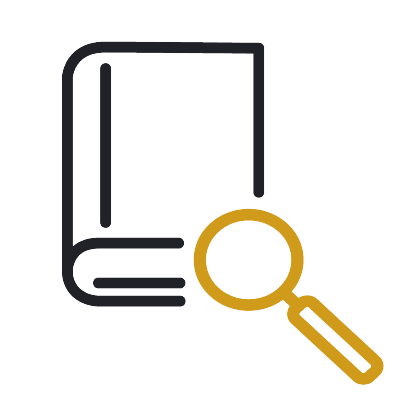
Research-led teaching
You’ll learn from a leading researcher on this topic, an author of a book on early modern plague that’s been translated into three languages.

Top 20 in the UK for History
We’re rated top 20 in the UK for History in The Times and Sunday Times Good University Guide 2024.
How you’ll study
Online learning
This distance-learning history of diseases course is delivered flexibly, 100% online.
You can learn with us anywhere in the world and manage your study hours to suit you.
Your teaching
This course is taught at Masters level.
Teaching is delivered through MyAberdeen, our online Virtual Learning Environment (VLE). It holds all the materials, tools and support you’ll need in your studies. Take a look around MyAberdeen.
You can access your learning materials on computer, smartphone and laptop, 24 hours a day. You’ll find a range of resources available, including:
- online seminars
- podcasts
- reading materials
- discussion boards with your tutors and peers
- the online resources of our award-winning Sir Duncan Rice Library.
Live online seminars
Each week, your course coordinator will host a one-hour live online seminar. In these sessions, you’ll discuss the week’s material and any questions you have. Seminars will be recorded, so you can watch later if you cannot attend.
Your tutors
This course is delivered by the Department of History within our School of Divinity, History, Philosophy, and Art History.
You’ll learn from Chair in History at the University of Aberdeen, Professor William G. Naphy.
This course is assessed online.
You’ll be assessed throughout your studies via:
- reviewing several reviews of key historiographical secondary works published in peer-reviewed academic journals (worth 10% of your final course grade)
- a comparative analysis of the historiographical arguments and approaches in a selected pair of peer-reviewed academic articles (30%)
- an essay (60%).
Live online seminars
You’ll have one live online seminar each week. Each seminar is scheduled to last for around one hour. Typically, these will be every Friday from 17:00-18:00, UK time.
Seminars will be recorded, so you can view them later if you cannot attend live.
Study hours
This course totals approximately 300 hours of study and assessment time.
That’s around 15 – 20 hours per week in regular topic work, with more time required around assessments.
This is an indicative guide to the time required for a typical student at this level to achieve the learning outcomes.
You can largely set your own study hours to cover the materials. MyAberdeen is available 24/7, so you can log in and study when it suits you.
Activities at fixed times
You’ll have live online seminars at fixed times, plus assessments with deadlines. But otherwise, you can access and work through your course at your convenience.
Our first-class support structure will ensure that you aren’t alone in your studies. You’ll have contact with your coordinator via email, MyAberdeen and Microsoft Teams. You can use social media and discussion boards to chat with your fellow students too.
We provide a wide range of services to support you in your studies and beyond:
- Careers and Employability Service
- Disability support
- IT support
- Library support
- Student Support Service – help with finances, stress, wellbeing and non-academic issues
- Student Learning Service – study support, with advice sessions available via phone or Skype
- Aberdeen University Students’ Association (AUSA) – run by students for students
- Toolkit – clever apps and free training that can make your study life easier
Wherever you are in the world, you’ll feel part of our very special Aberdeen learning community.
Outstanding expertise

Professor William G. Naphy
William is Chair in History at the University of Aberdeen and is your course coordinator.
He has made frequent appearances in the media (BBC Radio 4, BBC Scotland, Channel 4, Grampian TV) as a specialist on the history of plague, witchcraft, and sexuality.
William is a leading authority on the history of crime and punishment in the early modern period, as well as Calvin’s Geneva during the sixteenth century.
His works on pandemics, witchcraft, crime, and sexuality have been translated into numerous languages. William is a Fellow of the Royal Historical Society and a member of the Sixteenth Century Studies Society.
View William’s profileWhere this will take you
Towards a Masters degree
You’ll earn 30 credits at Masters level (SCQF Level 11) with this course. You can use these credits towards our online:

Masters in Scottish Heritage
Explore the rich history, art and philosophy of Scotland and its people. Access rare archive treasures and award-winning online teaching, with this flexible online Masters.
View MLitt Scottish HeritageBuild your learning
Continue to develop your knowledge of Scottish history, and build further Masters-level credits, with our growing range of online short courses:
- Approaches to Research: Archives and Sources
- Jacobite Scotland: Cultures, Identities, Legacies 1688-1830
- Pandemics and Plagues: History’s Deadliest Diseases
- Scotland: A Millennium of History
- Scottish Church History: From Columba to Graham
- Scottish Visual History
- Scottish Witch-Hunting and the Rise of Protestant Culture 1590-1690
- The Philosophy of the Scottish Enlightenment
- The Scottish Diaspora
Careers
This course offers career-enhancing skills applicable in a range of professions, including teaching, tourism, and museum work.
You’ll gain transferrable skills in debate and constructive criticism through written presentations, interactive discussions, and independent study.
Continuing professional development (CPD)
Your employer or professional institute may recognise this course for CPD hours. Talk to your employer or institute to find out more.

Free career support
Access our free careers service while you study.
- 1:1 appointments
- CV checks
- Interview prep
- Job opportunities
Choose the University of Aberdeen for flexible online history courses
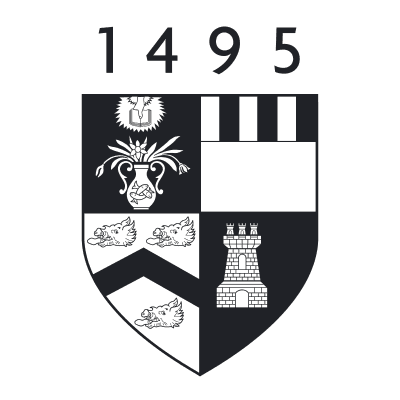
Over 525 years of excellence
Study with the fifth-oldest university in the English-speaking world, founded in 1495.

You’re in expert hands
We’ve been delivering online and distance learning for decades.
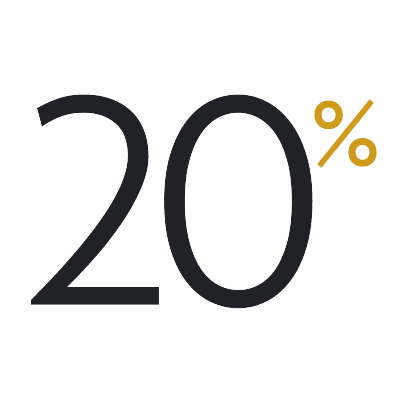
20% alumni discount
University of Aberdeen alumni get 20% off this online course.
Entry requirements
Entry requirements
We welcome students from all over the world.
This course has no formal entry requirements. You do not need to provide proof of your qualifications.
But you do need to check the entry guidance above to understand the level of teaching delivered, to decide if this course is right for you.
If you do not have qualifications from the UK, check the equivalent teaching level for your country.
Visa requirements
You do not need a student visa to study online with us.
English language requirements
Teaching is delivered in English.
You do not have to provide proof of your English language skills to join this course. But we want to make sure that you can use English well enough to study successfully.
Recommended level of English
This course uses our Postgraduate Higher level of English language proficiency.
These are our Postgraduate Higher requirements, and these are minimum scores.
IELTS Academic, IELTS UKVI Academic, and IELTS Online (not IELTS Indicator or IELTS General Training)
- 6.5 overall
- 5.5 for listening and speaking
- 6.0 for reading and writing
TOEFL iBT and TOEFL iBT Home Edition
- 90 overall
- 17 for listening
- 21 for reading
- 20 for speaking
- 21 for writing
- TOEFL DI code is 0818
Cambridge English: B2 First, C1 Advanced, or C2 Proficiency
- 176 overall
- 162 for listening and speaking
- 169 for reading and writing
LanguageCert Academic/LanguageCert Academic SELT
- 70 overall
- 60 for listening and speaking
- 65 for reading and writing
LanguageCert International ESOL B2 Communicator (Written and Spoken) – Online / In-centre
- Overall High Pass
- 33 for listening, reading and speaking
- 38 for writing
Oxford ELLT Digital – English Language Level Test Online
- 7.0 overall
- 5.0 for listening and speaking
- 6.0 for reading and writing
PTE Academic (online test not accepted)
- 62 overall
- 59 for listening, reading, speaking and writing
Duolingo – tests taken from 1 July 2024 onward
- 120 overall
- 95 for listening and speaking
- 105 for reading and writing
University of Aberdeen English Pre-sessional Programme (PSE)
- Pass
- Valid for one year. Refresher can be offered if out of date
Pre-sessional academic English preparation programmes undertaken at other UK universities
- Pass at an equivalent of 6.5 (C1)
- B2 in all four skills
- Certification must be within one year prior to the start of your course
For more information about language qualifications see our English Language Requirements page.
You will need access to:
A computer (PC, laptop or Mac) operating on either:
- Windows 10 or later
- macOS 10.15 (Catalina) or later.
Most teaching materials are smartphone- and tablet-friendly. But we recommend a proper laptop or desktop for completing assignments comfortably.
Reliable internet access
We recommend:
- a wired connection
- a minimum download speed of 2 Mbps so you can take part fully in live sessions.
Speakers or headphones
- We recommend a headset with built-in microphone and earphones if you’re likely to study in an environment with background noise.
- A webcam is optional, but you may like to use one for some interactive sessions.
Software
We’ll give you access to Office365 applications. This means you can use online versions of Microsoft Word, Excel, and PowerPoint and install these programs on up to five personal devices.
If your course requires specialist software, we’ll provide you with access to this and a licence that lasts throughout your studies.
See our detailed IT requirements for more information.
When you study with us, you can expect a first-class support structure so that you’re never alone in your studies.
But learning online does mean you have to motivate yourself and manage your own time.
Your most important commitment will be time – the time to work through, reflect on and understand your teaching materials.
Before you start a course that involves a high degree of independent study, we recommend looking at the time you will be able to devote to your studies each week:
- Be realistic
- Create a weekly schedule as a guide
If you have any questions about studying online, get in touch with our friendly team. We’re here to help.
Fee payment
Your course fee needs to be paid in full before you start your course.
We accept payment via Visa Debit, Visa Credit and Mastercard.
Ways to save
You may be able to get help funding this course via:
- discounts – if any discounts are available for this course, they’ll appear in the section below
- employer sponsorship – we accept full and partial fee payments from sponsors.
Find out more about funding options.
Student card
All our students are entitled to a University of Aberdeen student card. This gives you access to a range of student discounts around the city and online.
Learning resources
Access to all the books and resources you need are included in your tuition fee. They’ll be made available to you online and you do not have to buy your own copies.
Printing
You may wish to set aside a small budget for printing, depending on how you like to work.
This course has no formal entry requirements. You decide if it’s suitable for you.
The course is delivered at Masters level. At this level, you’d usually have at least
- a 2:2 UK honours degree (or equivalent), or
- relevant experience that supports this level of study.
Apply for this course



















